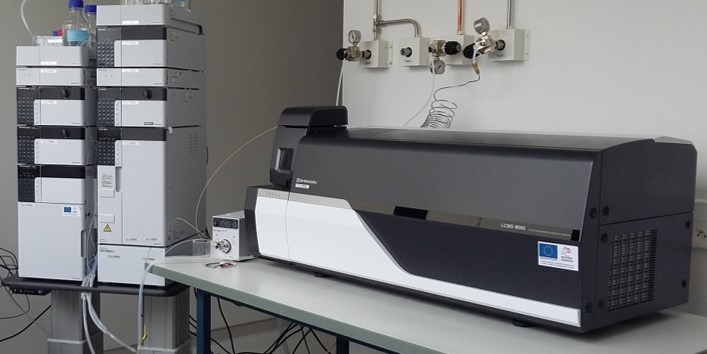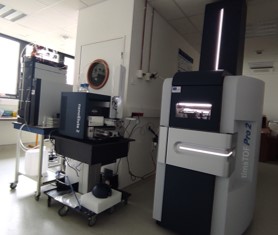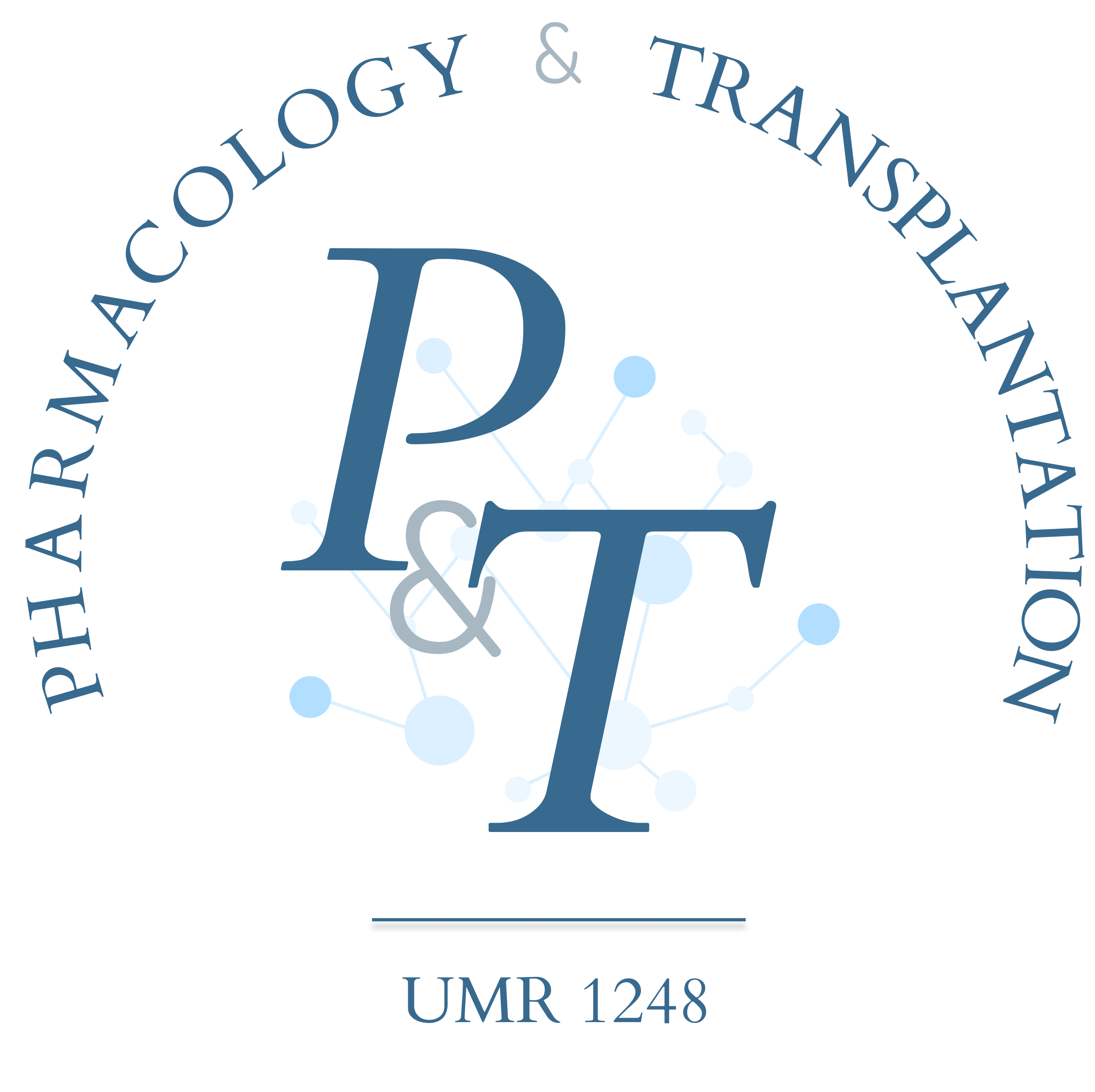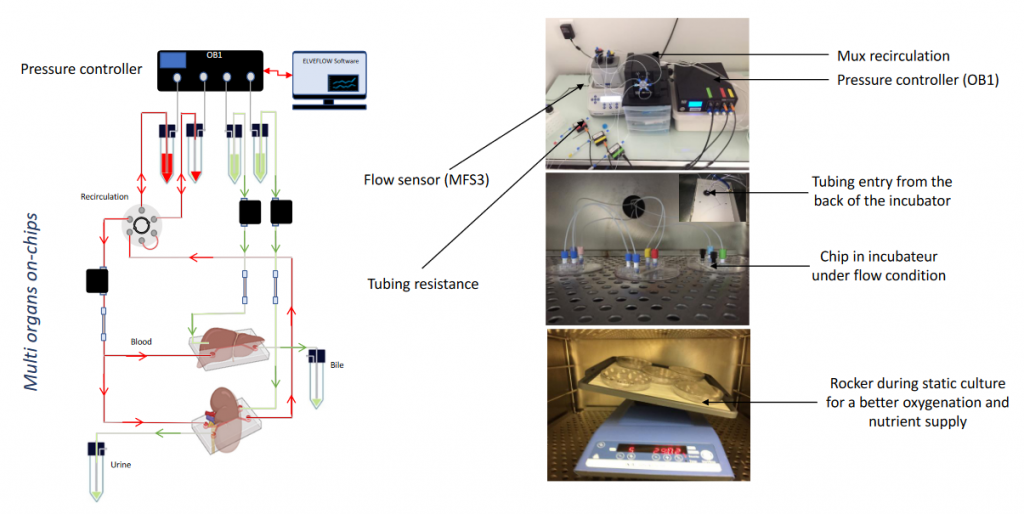Focus on organ-on-a-chip systems
Organ-on-a-chip systems are advanced microfluidic platforms designed to replicate, at a microscopic scale, the structure and function of human organs. By integrating living cells into precisely controlled environments, these devices allow the study of physiological processes and pathological mechanisms under well-defined conditions. They offer a promising alternative to traditional in vitro models and animal models, particularly for drug testing, toxicity assessment, and modeling organ-specific responses.
Here is a representation of our microfluidic system, which includes a pressure controller, ensuring a stable and reproducible flow within the device. The flow rate is continuously monitored using integrated sensors and precisely adjusted via Elveflow™ software, allowing for optimal control. Additionally, the addition of damping resistors enhances flow consistency, reducing fluctuations and ensuring a constant and homogeneous perfusion.
Finally, a schematic representation illustrates the commercial chip devices used for cell culture, whether single-channel or dual-channel. In this context, we present a model replicating the proximal convoluted tubule barrier, providing an ideal platform for advanced physiological and pharmacological studies.
Focus on mass spectrometry analyses
We use the equipment provided through the BISCEm platform for the development of analytical methods for the identification and quantification of molecules of interest for the laboratory:
- Quantification of short-chain fatty acids (SCFA) in various matrices (plasma, feces / human or mouse)
- Quantification of drugs (mycophenolic acid, tacrolimus, metformin, midazolam, …) and their metabolites in various matrices (plasma, cell cultures, …)
- Targeted or untargeted metabolomics
- Proteomics
| LCMS8060 for small molecule quantitation |
Tims TOF Pro 2 for untargeted identification and quantitation | |
 |
 |
 |

